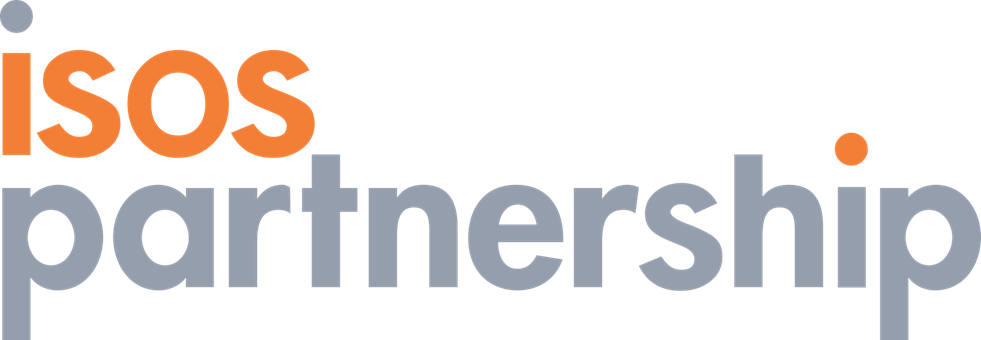organisational capacity
Developing the multi-academy trust assurance framework
‘We were first introduced to the framework at a local MAT meeting by our RSC office. We were looking for a good self-evaluation tool and this seemed perfect - it gives you a chance to reflect on what we do well and identify where we might need to put more effort going forward. The process identified three clear priorities for improvement which then became a clear focus for our strategic plan.’
— Multi-academy trust CEO, West Sussex
The brief
Historically there has rightly been a strong focus on and much guidance available to support multi-academy trusts (MATs) around their finance, HR, and back-office capacity. There was much less material available for MATs on school improvement. We were commissioned in 2017 by the Regional Schools Commissioner (RSC) team in the South West region to develop a self-evaluation framework for MATs on school improvement, working closely with a number of MAT CEOs in that region. Subsequently we were also asked to support the roll out of the framework to over 40 MATs in the South West using the framework as part of focused action learning sets.
In 2020 we were commissioned by DfE to undertake a review into the use of the framework in other regions and to update the framework and associated guidance to show how the framework has been used in different ways by MATs across the country. The new version of the framework and guidance was published by DfE in May 2021 and can be found here.
What did we do?
During the initial development of the framework, we worked closely with Robert Hill to use existing research and international practice (for example, Charter Schools in the US) to establish an outline framework for discussion. We then worked with a steering group of MAT CEOs from the South West through a series of workshops to review, revise and develop the framework into a working version that could be tested and piloted by other MATs in the South West.
MAT CEOs then tested the framework within their own trusts initially. The CEOs held self-evaluation workshops using the questions and content in the framework with their trustees, senior and middle leaders, and other MAT staff. We then worked with the MAT CEOs to update the self-evaluation framework and develop it further.
The final version of framework was presented to all MATs in the South West at a school improvement conference in 2018. MATs in the South West were then invited to join action learning sets. Over 40 MATs signed up to be part of one of these action learning sets. They provided an opportunity for MAT CEOs to work together across trust boundaries. They each began their work by sharing their self-evaluation they had undertaken using the framework.
The action learning sets have continued to work together over the last three years to focus on common issues identified through the initial self-evaluation. In many cases they have visited each other’s MATs to share and discuss their own approaches to school improvement and elements of the framework. Other MATs in the South West have been invited to join action learning sets over time. We have also spoken at events in other regions to introduce the framework to MATs and to support the development of an action learning approach in the North West.
As part of our more recent work to review and update the framework we spoke to five of the MATs in the South West who have been using it consistently over the last three years and five MATs in other regions who had also started to use the framework. The feedback we received about the framework was very positive with many MAT CEOs commenting that they welcomed the focus on school improvement and that it had given them a tool for having a conversation across the trust about their priorities for improvement and a common language for discussing MAT school improvement with other trusts.
The two changes we have made to the framework and guidance following this latest review are:
to highlight some questions MATs might want to start with within each element of the framework to help make the framework easier to access for trusts coming to the framework for the first time or for newer or smaller trusts who might just be starting to think about their capacity for school improvement; and
to update the guidance document to show the different ways the framework has been used by trusts including informally between two or three trusts working together, more formally through action learning sets or as part of a peer review process, and more recently by DfE to support trust-to-trust mentoring conversations around growth. The new guidance also includes further case study examples of trusts using the framework.
What difference did we make?
The updated version of the framework and guidance is available here. One of the most rewarding aspects to this project was how many MATs said how useful it was to take time to reflect on the core business of school improvement across their trusts, given how little material there was to help them with this thinking previously.
The action learning sets have also provided a powerful opportunity for MATs to share and reflect with each other across MAT boundaries. Again many MAT CEOs said they welcomed this opportunity to reflect on their own practice and discuss the challenges facing them with other MAT CEOs.
It is clear that the framework is already being used by MATs in other regions in a number of different ways. We are excited about its potential future development, and the ways that MATs will be able to work together and explore their school improvement capacity using the framework in collaborative discussions.
What did the client say about the work?
‘We’ve used the framework over a number of years now. It has allowed us to check the progress we are making and also show staff how their views had influenced our priorities – the middle leaders group were delighted to find we had listened to them! Trustees and local governors have been trained on the Framework – it has a helpful clarity and provides them with questions for appropriate challenge.’
— MAT CEO, South West
‘We love the focus on school improvement … this helps us keep the focus on key priorities and helped me as CEO to step back and ask the right questions. It came just at the right time. We don’t always agree with each detail, but the questions help us to reflect on practice and what needs to be done - it makes you think and question how you know.’
— MAT CEO, Cumbria
‘We’ve used it as a diagnostic tool as it was intended as a guide to identifying priorities for improvement. There are things in there that are relevant to MATs at all stages of development. We see it as a take it or leave it approach – it’s for you as a MAT to judge which bits are most relevant or most important to you.’
— MAT CEO, Liverpool
‘We were first introduced to the framework at a local MAT meeting by our RSC office. We were looking for a good self-evaluation tool and this seemed perfect – it gives you a chance to reflect on what we do well and identify where we might need to put more effort going forward. The process identified three clear priorities for improvement which then became a clear focus for our strategic plan.’
— MAT CEO, West Sussex

